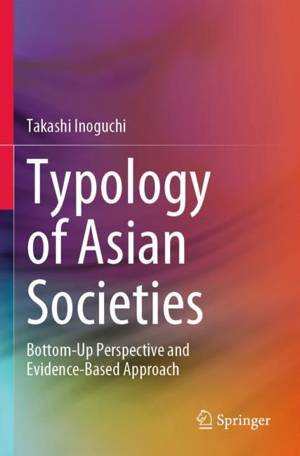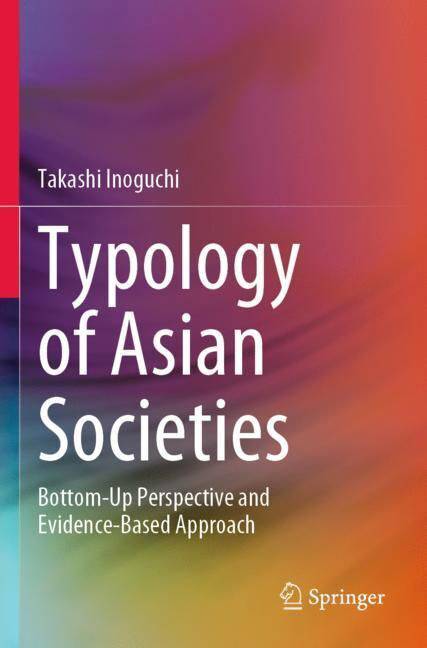
- Afhalen na 1 uur in een winkel met voorraad
- Gratis thuislevering in België
- Ruim aanbod met 7 miljoen producten
- Afhalen na 1 uur in een winkel met voorraad
- Gratis thuislevering in België
- Ruim aanbod met 7 miljoen producten
Typology of Asian Societies
Bottom-Up Perspective and Evidence-Based Approach
Takashi InoguchiOmschrijving
This book is about generating types of societies by the degree of individuals' satisfaction with life domains, aspects, and styles via factor analysis. It adopts an evidence-based approach in typologizing and a bottom-up rather than a top-down perspective. Thus, the book's position is against Hegel (freedom for one person), Marx (the Asiatic mode of production), Weber (Protestant ethics and the spirit of capitalism), Wittfogel (Asiatic autocracy), and Rostow (Western-led modernization). These classical and modern authors tend to see Asian societies with somewhat fixated eyes and categorize Asian societies in a top-down manner.
When random-sampled respondents are questioned about their satisfaction with daily life in terms of life domains, aspects, and styles, public policy and institutions as well as survival and social relations are inevitably touched upon--the latter two being the key dimensions common to the World Values Survey and other cultural surveys. This book proposesa new mode of typologizing societies, Asian or non-Asian, not immediately familiar to human geographers, cultural anthropologists, or sociologists, but revealing many complex unknowns with the easy-to-learn typologizing method.
Specificaties
Betrokkenen
- Auteur(s):
- Uitgeverij:
Inhoud
- Aantal bladzijden:
- 125
- Taal:
- Engels
Eigenschappen
- Productcode (EAN):
- 9789811954689
- Verschijningsdatum:
- 21/11/2023
- Uitvoering:
- Paperback
- Formaat:
- Trade paperback (VS)
- Afmetingen:
- 156 mm x 234 mm
- Gewicht:
- 213 g

Alleen bij Standaard Boekhandel
Beoordelingen
We publiceren alleen reviews die voldoen aan de voorwaarden voor reviews. Bekijk onze voorwaarden voor reviews.












